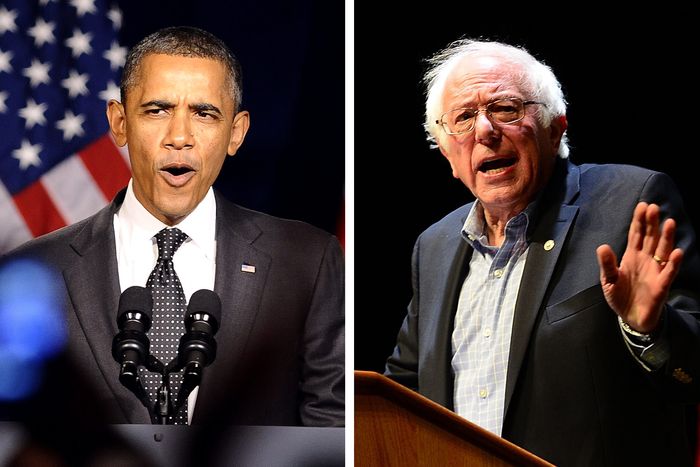
In the conventional wisdom about the Obama presidency, particularly among progressives who weren’t big fans, the 44th president took office with a naive belief in bipartisanship, and thus got mugged by the GOP’s systematic obstructionism. What he was able to accomplish he did so by using his executive powers — and this mainly amounted to stopping conservatives from imposing their will on the country after they took back the House in 2010, and the Senate in 2014.
I beg to differ with this memory of the Obama presidency. He wasn’t naive, and didn’t have big illusions about the Republican Party’s leadership, or its evil intent towards his administration. He did, however, overestimate his ability to impose his own will on Republicans via appeals to their voters. At the time, I called it “grassroots bipartisanship:”
Nowhere has Obama promised Americans he would come to Washington and broker deals between the two party’s congressional leaders and interest groups. What he has done is to promise those inside and outside the two parties’ rank-and-file that he’ll force Washington to get big things done — achieving universal health care, reducing dependency on oil, addressing the downside of globalization, making public schools work, responsibly ending the war in Iraq and restoring America’s full arsenal of non-military assets. These happen to be priorities that have steadily become dominant concerns for big majorities of self-identified independents and a significant minority of self-identified Republicans as well.
Defining both parties in Washington, and their fruitless rivalries, as obstacles to progress on these priorities made Obama’s demand for change a lot more compelling at the bipartisan grassroots, where some degree of bipartisan distrust of Washington has lurked under the surface of partisan attachments for decades.
Unfortunately, that strategy for forcing cooperation in Congress didn’t work any better than straightforward efforts to cut deals with Republican leaders. Once Democrats lost their filibuster-proof margin in the Senate, and then their control of the House altogether, bipartisan initiatives in Congress became rare, then largely extinct.
I bring up this forgotten dimension of the Obama presidency because we are hearing something very close to a plan for “grassroots bipartisanship” from some 2020 Democratic presidential candidates — including a few who generally aren’t considered Obama disciples. One is Bernie Sanders, who seems breezily confident that his agenda can create a grassroots movement that will compel Republicans to go along, as Paul Waldman observes:
The question of how you get your ideas through Congress is particularly important for Sanders, because his agenda is the most sweeping and the one that will run into the strongest resistance, not only from Republicans but from outside stakeholders as well.
Unfortunately, Sanders’s usual answer to such questions is unsatisfying, to say the least. He argues that we need a popular revolution so overwhelming that even Republican legislators will bow down before its power and vote for things they abhor with every fiber of their beings, such as single-payer health care.
That, of course, is just not going to happen.
No it’s not, unless you think Bernie Sanders is massively more persuasive than Barack Obama was.
Sanders isn’t the only 2020 progressive who seems to be under the illusion that Republican opposition won’t matter to the implementation of his agenda. Senator Sherrod Brown suggests sheer legislative skill may work wonders:
Did Obama not know what he was doing? You’d have to be pretty damn smart, in my judgment, to think you are smarter than Barack Obama. Yes, some progressives think he wasn’t mean enough to conduct effective daily combat with his Republican opponents. But whatever the merits of meanness, it’s not going to convince Republican senators to vote for your legislation.
Brown’s comment may explain a lot of this big talk. He’s on the record — and for that matter, so are Bernie Sanders, Cory Booker, Kirsten Gillibrand, Kamala Harris, and Amy Klobuchar — in opposing the abolition of the legislative filibuster, which would significantly reduce the number of senators needed to enact partisan legislation. That opposition, I happen to believe, is grievously mistaken. But if you take that position, then you have to have some theory of how you are going to prevail in Congress, particularly if you have an ambitious agenda like most of the 2020 Democratic field. Obama had “grassroots bipartisanship,” which failed. What do his wannabe Democratic successors have? Pixie dust? It’s an important question.






























